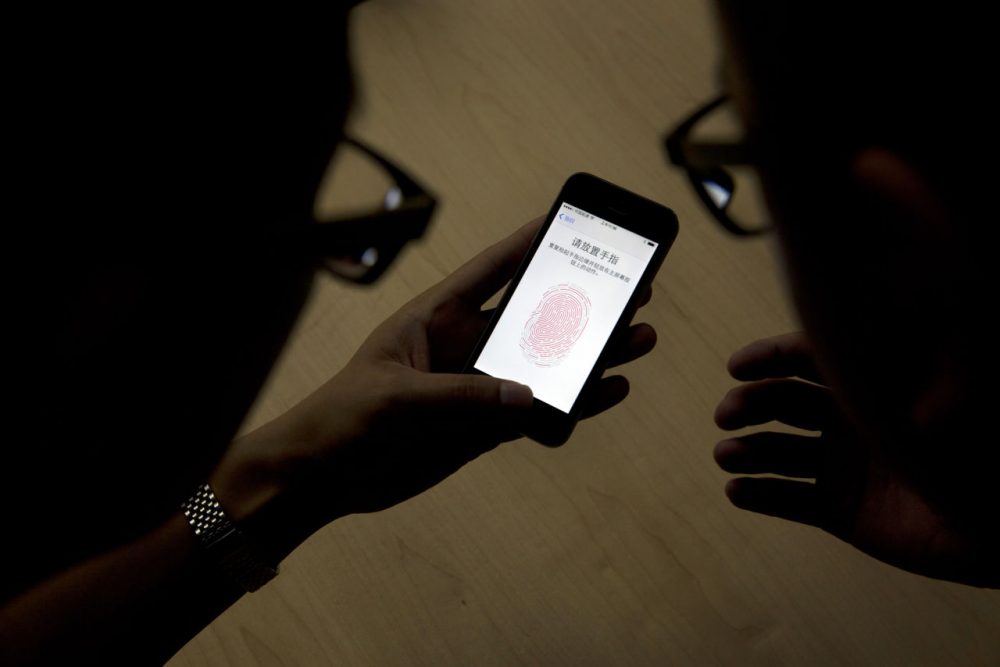Advertisement
It's Over, But FBI-Apple Case Sparks Anxieties For Privacy Advocates And Local Startups
Resume
The showdown between the FBI and Apple may be over now that the government says it doesn’t need the company’s help to unlock the iPhone of one of the San Bernardino attackers. But local privacy advocates say the dispute will likely continue — and that has the tech community concerned about how this could affect new technologies.
The key issue at the center of the high-profile dispute was whether the government can force a private company to give them backdoor access to its technology. While the government has dropped that case, there are other similar cases around the country — including here in Boston, where the FBI wants Apple to unlock the iPhone of Desmond Crawford, an alleged gang member suspected of shooting a rival gang leader.
Crawford's attorney, Rudy Miller, said he agrees national security may trump individual privacy in the San Bernardino terror case, but that his case is different.
"Basically, it’s just your standard generic criminal indictment brought in the federal district court for essentially gang activity," Miller said. "There is no national interest with this type of case."
Now that the FBI has dropped its case against Apple, Miller plans to file a motion to unseal documents related to the government's request to unlock his client's phone. Crawford is currently in federal custody awaiting trial.
The FBI said it could not comment on its strategies in specific investigations.
How A Cracked iPhone Stokes Fears Of Shattering Consumer Trust
"It’s potentially devastating for our high-tech companies here in Massachusetts and around the country that depend on consumer trust and digital security to thrive."
Carol Rose, executive director of the ACLU of Massachusetts
Privacy advocates say these types of cases are about more than just iPhones.
"It would apply to every technology from your television set to your iPhone to your refrigerator and maybe even your mattress if it becomes one of those digital mattresses," said Carol Rose, executive director of the American Civil Liberties Union of Massachusetts. "This is about the Internet of Things."
The concern here is about setting a precedent. Rose said the ACLU wants to make sure private companies are not forced to help the government hack into their technology in other cases.
"It’s potentially devastating for our high-tech companies here in Massachusetts and around the country that depend on consumer trust and digital security to thrive," Rose said. "If you don’t have consumer trust and customer trust, people won’t use your product."
This is also a worry for John Moore, the CEO of Cambridge-based startup Twine Health. His company deals with sensitive health information. They've developed an app that allows patients to connect directly with health care providers to develop health plans.
"In the area of health, if people start to develop a sense of distrust and aren't willing to share data that might be helpful for collaboration with their doctors or their nurse or their health coach, then it might really cause damage there," he said.
Moore said he wants to see data privacy strengthened moving forward.
And he hopes the government shares how it cracked the iPhone, so Apple can improve its technology. The company's lawyers have said they'll push for such a disclosure, but it remains one of the lingering issues in the San Bernardino case.
"The problem with backdoors is you can’t really build a backdoor that only lets the good guys in."
Andy Yen
Other startup leaders say law enforcement should recognize that encryption is here to stay.
Andy Yen -- the co-founder of ProtonMail, an encrypted email service that was part of the MassChallenge business accelerator -- said weakening encryption is bad for everyone.
"The problem with backdoors is you can't really build a backdoor that only lets the good guys in," said Yen, whose company is now based in Switzerland. "By weakening encryption, you sort of compromise security for everybody, and that’s kind of more dangerous than having one or two iPhones you cannot crack."
In a statement Monday, the Justice Department indicated it will likely continue to ask tech companies to help them access "crucial digital information" to protect national security.
Yen said "terrorists are also going online," and in the future, large-scale attacks will likely take place digitally, in the form of cyber terrorism. And that, Yen said, makes encryption more crucial for society as a whole.
This segment aired on March 30, 2016.
